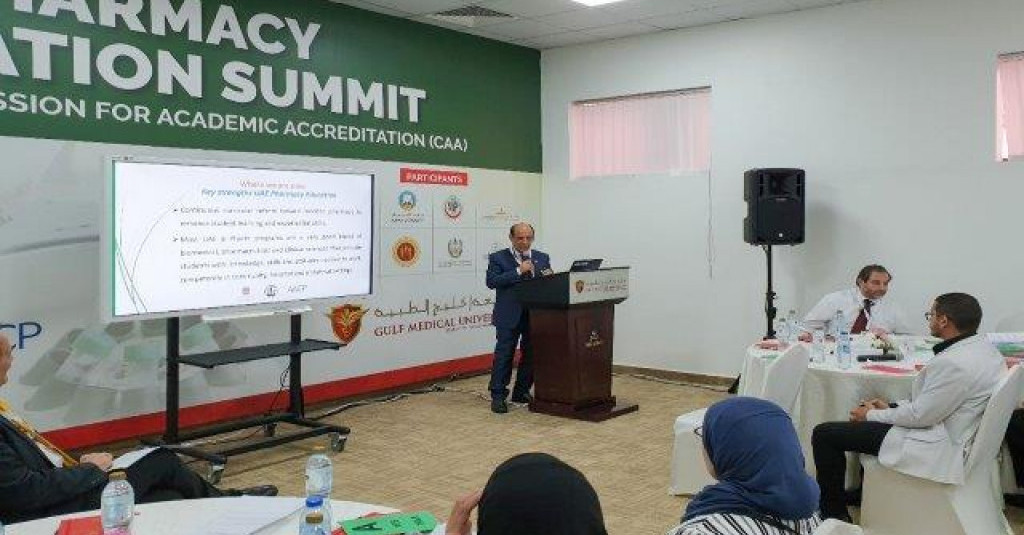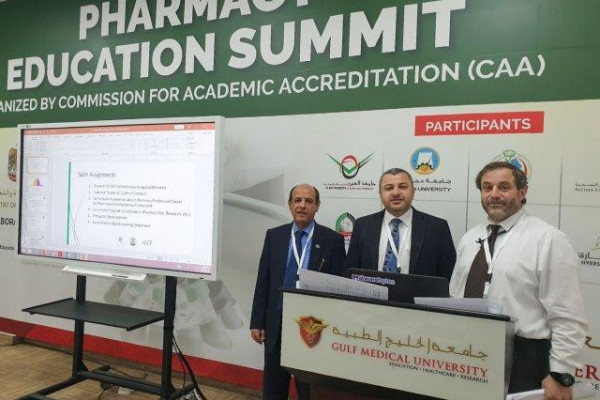AU Delegation Participates in Road Map for Pharmacy Education in UAE

A team from the College of Pharmacy and Health Sciences composed of the Dean Prof. Nageeb Hassan, Head of Pharmaceutical Sciences Department Dr. Moawia Al-Tabakha and Head of Clinical Sciences Department Dr. Muaed Al Omar attended the first of its kind UAE Pharmacy Education Summit 2019 under the theme “A Roadmap for Pharmacy Education in UAE”. The event was hosted by Gulf Medical University in Ajman and organized by the Commission for Academic Accreditation (CAA), Ministry of Education, UAE in collaboration with the Accreditation Council of Pharmacy Education (ACPE), International (Chicago, USA) and American Association of Colleges of Pharmacy (AACP), Virginia, USA.
During the workshop, Prof. Nageeb presented SWOT analysis from the College point of view for pharmacy education in UAE. He indicated that there is a need to have better cooperation with the Ministry of Health to provide quality and adequate number of training sites. Most pharmacy programs in UAE offer balanced blend of Biomedical, Pharmaceutical and Clinical Sciences, he said. He also emphasized the need to have quality assurance through international accreditation of pharmacy programs. This can be a benchmark for pharmacy programs in UAE that already accredited by the CAA, UAE. Because of the need to increase the courses and experiential learning that are patient-oriented in pharmacy programs without negatively affecting pharmaceutical sciences courses that are the backbone of pharmacy, Prof. Nageeb indicated that there is a need to set a minimum credit hour for pharmacy programs in UAE.
The College team were distributed to different round tables to ensure the exposure of each delegate to members from different schools. Each table was assigned to discussing one of the following (i) strengths, (ii) Weaknesses, (iii) Opportunities, (iv) Threats, (v) Vision Statement, (vi) Accreditation Benchmark Statement. Opportunities were presented to the audience to vote on the need, implementation and feasibility of each item. Dr. Moawia Al-Tabakha was assigned as facilitator to his table to manage the table group and present the group’s ideas to the audience.
At the end of the workshop, each group was asked to have an action plan to carry the opportunity items forward. Moreover, delegates voted for having a minimum of 150 CH of Pharmacy programs and at least 960 contact experiential hours (24 weeks or 24 CH).
